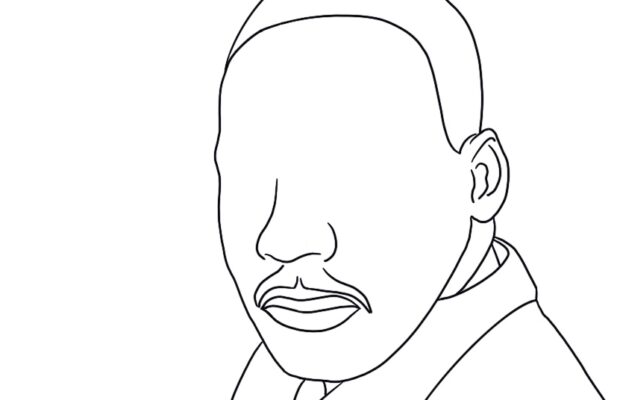Stop whitewashing Martin Luther King Jr.

“I have a dream that my four little children will one day live in a nation where they will not be judged by the color of their skin but by the content of their character.” This is one of many quotes from Reverend Martin Luther King Jr.’s famous “I have a dream” speech. King was an advocate for civil rights, leading the march on Washington in 1963 and helping bring an end to the Jim Crow era of segregation. However, years have passed since his assassination and political culture has shifted.
Unfortunately, the modern discussion of King’s advocacy efforts feels completely toothless. Today, many people look at Martin Luther King Jr. in the same way they look at Santa Claus or the Easter Bunny. He is looked at like a magical figurehead that stopped racism forever and is constantly being used for bad-faith arguments. While he is also seen as a figurehead on the left, it is right-wing politicians and pundits that constantly invoke King’s name in order to fuel their own agendas.
Over the years, Martin Luther King Jr. has been completely sanitized to the point that conservative politicians are now able to use King’s legacy to prevent programs that would actually reduce the racial-economic gap. The quote that I began the article with happens to be the main part of King’s speech that conservatives quote endlessly. Whenever there is any proposition to fund or input a new program that will give an advantage to impoverished black communities, there is always some sort of right-wing push back utilizing that one, singular quote in their argument. It genuinely baffles me how they believe that King would oppose ideas like reparations and socialism when King openly advocated for both.
King actively believed that capitalism was at the root of hatred and division. According to the In These Times publication, King is quoted saying, “Capitalism has often left a gap of superfluous wealth and abject poverty [and] has created conditions permitting necessities to be taken from the many to give luxuries to the few.” The very notion that King would oppose social institutions and programs in favor of helping the wealthy capitalists who kept him in a lower social class is ludicrous.
Many believe that when King told people to judge not by skin color but by the content of character, he was saying that everyone should be treated equally, no matter their ethnic background. While this is partially true, he also heavily advocated for what would come to be known as reparations. In an NBC News clip, King, while speaking to his supporters, said, “When we come to Washington in this campaign, we are coming to get our check.” He adamantly believed that the only way to properly diminish the racial gap was to give money and fund black communities and organizations straight from the government’s pocket.
Contrary to what has been taught regarding King’s legacy, he was never a moderate democrat who was well-liked by everyone in his era. King’s approval ratings during his life were so low that it would put the average politician to shame. The FBI infamously sent King an ominous letter that implored him to commit suicide, a fact that was uncovered only a few years after he was assassinated.
Were King alive today, I believe he would be disgusted with the image that the right has painted of him. Martin Luther King Jr. was a radical, socialist democrat who advocated for reparations, and to represent him as anything other than that is just dishonest.



